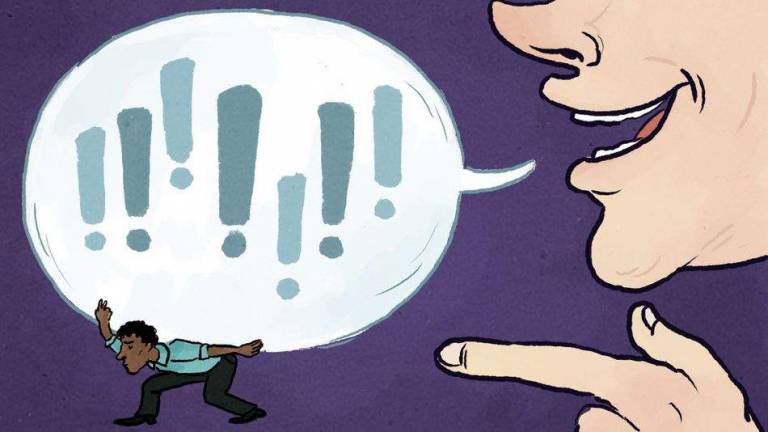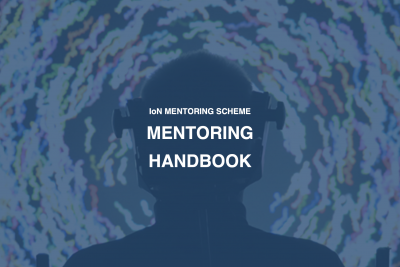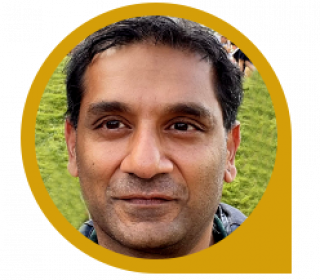Mentoring is a crucial part of supporting career progression and we are dedicated to trying to find an appropriate mentor for any person who requests one at IoN.
Mentoring enables people to achieve their potential through a work-based relationship between two parties who are not connected within a line management structure. At its core, a successful mentoring relationship relies on two important factors:
- the mentor should be more experienced than the mentee and guides the mentee towards an agreed objective that is connected to a career plan.
- the mentee takes primary responsibility for managing their learning with the help of the mentor.
At the Institute of Neurology we are committed to supporting the Career Development of all our members of staff and students. We have different offerings for Masters students, PhD students, non-clinical/clinical Research and Academic staff. We are also part of the faculty-wide mentoring scheme for Technical and Administrative Professional Services staff.
- Contacts for available schemes
- Non-clinical Research and Academic staff, including PhD students (contact Bilal Malik: b.malik@ucl.ac.uk);
- Clinical Research Fellows/Associates, including PhD students (contact Ed Wild: e.wild@ucl.ac.uk);
- Under-represented Student Mentorship Scheme (contact Laura Convertino or Michael Moutoussis: laura.convertino.18@ucl.ac.uk or m.moutoussis@ucl.ac.uk);
- Faculty-wide Professional and Technical Services staff (contact Ciara Wright: ciara.wright@ucl.ac.uk).
- Who can be a mentor?
Anyone can be a mentor! PhD students and Research Assistants can mentor Masters Student. Junior Postdocs can mentor PhD students. You are never too junior to be a mentor, and you will always have relevant information to share with those who are less advanced in their career path.
- How can mentees benefit?
- Receiving advise in career direction;
- Receiving guidance on UCL/IoN policies and procedures for career and salary progression;
- Help shaping CV;
- Building confidence;
- Creating new opportunities for networking.
- How can mentors benefit?
- Recognised involvement in a programme of strategic importance to your Institute.
- Mentoring is a promotion enabling and citizenship activity which is encouraged by the Institute and the Faculty.
- Funding bodies increasingly value an active mentoring programme and often encourage senior staff to be mentors.
- Developing mentoring/coaching skills.
- Increased confidence.
- Personal fulfilment, particularly satisfaction form seeing junior staff progress.
- How are mentor-mentee pairings made?
We will pair you with a mentor who is senior to you and based in a different Research Department at IoN, to ensure no conflict of interest.
Mentoring is a voluntary scheme. Each mentor/mentee pair will be required to agree and sign a mentoring agreement setting up mutual responsibilities and expectations. The mentor or mentee will be able to withdraw from the scheme at any point.
- Confidentiality
Mentor-Mentee pairings are stricktly confidential. Furthermore, for the mentoring relationship to succeed, it must be completely confidential. Any information that the mentor receives about the organisation or other individuals will be kept confidential and not relayed to co-workers or exploited for personal gain. The exception to this will be in the case of information which the mentor believes shows the organisation or individual to be at risk. In these cases the mentor will discuss the course of action with the mentee before talking to the sponsors of the mentoring scheme. In addition, the mentor may, in general terms, relay concerns expressed by more than one mentee e.g. where there is a concern about a procedure or policy.
Resources and available schemes:
- The IoN Mentoring Kit: training materials and useful resources
IoN Mentoring Handbook
This handbook has been produced to provide guidance and to help mentor and mentees make the most about this relationship. Training material prepared by the members of IoN EDI Committee - Mentoring Action Group. Specifically Jo Barnes (Associate Professor), Sophie Roberts (Research Assistant), Katie Kelly (PhD Student) and Ana Faro (EDI Project Manager).
ION Mentoring Agreement
A mentoring agreement is a reference document where mentor and mentee agree what are their commitments during the period they work together. As part of the resources we offer, a Mentoring Agreement template. Download the editable word document here ahead of your first meenting.
IoN Training on Mentoring Relationships
MediaCentral Widget Placeholderhttps://mediacentral.ucl.ac.uk/Player/FidffI88 Mandatory online training for mentors and mentees enrolled in UCL Queen Square Institute of Neurology Mentoring Scheme. Training material prepared by the members of IoN EDI Committee - Mentoring Action Group. Specifically: Jo Barnes (Associate Professor), Sophie Roberts (Research Assistant), Katie Kelly (PhD Student) and Ana Faro (EDI Project Manager).Training on Everyday -isms and Microagressions

Recommended online training to support mentors and mentees. Training material prepared by UCL Medical School: this seminar was written by Seb Casalotti (Postgraduate Teaching Assistant) and Jayne Kavanagh (Principle Clinical Lecturer), with input from Naz Rassa (FY1 Doctor), Davina Nylander (UCLMS Student), Davina Puri (UCLMS Student) and the Student EDI Committee.
If you would like to learn more about Mentoring and what other offerings are available to you at UCL, please visit UCL Organisational Development website on Mentoring.
NOTE: Upon prior agreement, we are happy to share the resources prepared by us with anyone at UCL and beyond. We kindly ask you to get in touch with Bilal Malik if you wish to use our resources.
- IoN Academic Mentoring Scheme: for PhD students, Researchers and Academics
The IoN Academic Mentoring Scheme was set up in 2013, as part of our institutional Athena SWAN strategy to support the career progression of female scientists and clinicians. The impact in the institute was undeniable, and it has since been expanded to all scientists and clinicians at IoN. It is a professional and personal development experience that benefits mentees and mentors alike, as confirmed by our participants. In 2021, over 90% of mentees agreed or highly agreed that the IoN Academic Mentoring Scheme had a positive impact on their career development, while 78% of mentors think being a mentor had a positive impact on their own career.
Who is this scheme for?
The scheme is open to all clinical and non-clinical Academics, Researchers and PhD students at the IoN.
How can you join this scheme?
The IoN accepts expression of interest from mentees twice per year: March and October. An open call will be made via email to all members of staff and PhD students informing how many placements are available and at what level of seniority. Offerings of placements in the scheme are dependant on avaialbility from mentors, and will be made on a first-come first-serve basis.
If you are interested in becoming a mentor/mentee within this scheme, please contact Bilal Malik or Ed Wild.
- IoN Under-Represented Student Mentorship Scheme: for Masters Students
What is URSM?
The Under-Represented Student Mentorship Scheme (URSM) initiative organises senior-to-junior student mentorship for Masters students from under-represented groups, who are considering applying for PhD studies in Neuroscience at UCL.
What does Under-Represented mean?
Under-represented refers to anyone who faces barriers to opportunities due to mental health issues, physical health/disability, neurodivergence, socio-economic background, and those from the LGBTQIA+, and Black, Asian and minority ethnic communities. Although this definition is already broad, we leave to each person the self-identification as a member of an under-represented group.
We aim to:
Improve diversity and representation across neuroscience departments. In particular, this programme has been promoted by the IoN Wellcome Centre for Human Imaging but aims to include the broader community of UCL neuroscience.
For more information and to learn how you can participate in this scheme, please visit our website.
If you are interested in becoming a mentor/mentee within this scheme, please contact Laura Convertino or Michael Moutoussis.
- Faculty of Brain Sciences Professional Services and Technical Staff Mentoring Scheme
The Institute is encouraging professional staff to seek a mentor through the Faculty Professional and Technical Services mentoring scheme.
If you are interested in becoming a mentor/mentee within this scheme, please contact Ciara Wright.
- in2reseach Mentorship Programme
In 2020, the IoN Wellcome Centre for Human Neuroimaging (WCHN) launched a pilot programme, in partnership with in2scienceUK, to offer mentorship opportunities for students from underserved backgrounds. The in2research programme aims to help people from low-income and disadvantaged backgrounds access PhDs and research careers through a year of development opportunities. In2research participants will have access to workshops, mentoring, away days and a funded summer research placement in a top university. For more information about the programme please visit the website.
If you are interested in becoming a mentor within this scheme or want to be a placement host, please visit this website or contact Cassandra Hugill. If you are interested in becoming a mentee within this scheme, please visit this website.
Read more about it here:
“My mentor was able to offer valuable advice about career direction and forming constructive relationships with co-workers. What I took away from the mentoring process was how important it was to have a mentor who could offer empathy and understanding to the difficulties you had but also challenge you to face up to difficult situations and take charge of your future. It felt very healthy to have an opportunity to evaluate my career with someone and be honest about what was required to succeed in academia with someone who had “made it”. - Clare Sarell, Research Associate, Department of Neurodegenerative Disease.
 Close
Close



